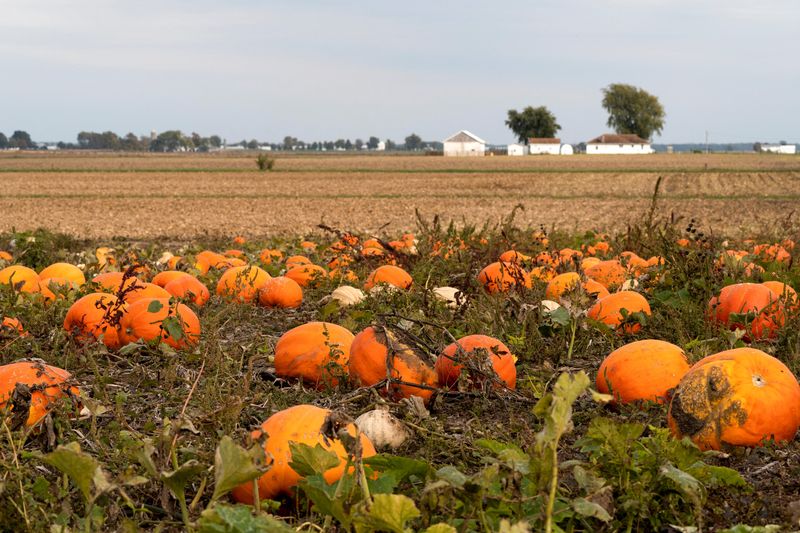By Eric Cox
(Reuters) - From the perennial popularity of Starbucks (NASDAQ:SBUX)' Pumpkin Spice Lattes to the annual introduction of creative new pumpkin-related products, like Hefty's already sold-out pumpkin-scented trash bags, the brightly-colored crop seems to hold a special place in the hearts, minds and wallets of Americans.
Nielsen data reveals Americans spend about half a billion dollars on pumpkin spice products every year.
According to coffee giant Starbucks, Pumpkin Spice Lattes earned the company its best sales week of all time when the drink was reintroduced to fans on Aug. 30.
"It's part of a tradition, it's included in movies," said Nick Kokot, 20, a second-year college student and self-proclaimed pumpkin lover. "Pumpkins also created a nice culture with pumpkin spice donuts, drinks, everything. Soaps, bars, everything, I appreciate it."
But what is it that drives this sudden infatuation with pumpkins every autumn?
"There's no practical reason to put pumpkin in your cup of coffee, to put it on your front stoop, to sweeten it and put it in your pie," said Cindy Ott, a historian, college professor and the author of "Pumpkin: The Curious History of an American Icon (NASDAQ:ICLR)."
"But those modern-day traditions actually date back to much older traditions of associating the pumpkin with a small family farm. The idyllic kind of small family farm in American life."
Using sources including century-old songs, paintings, cookbooks and more, Ott was able to trace the love for pumpkins, which are native to the Americas, all the way back to the nation's early days.
She details the pumpkin's rise from its poor reputation during colonial times, when it was seen as bland, to a growing sense of pride imbued in the vegetable during the 19th century as it started to be seen as a symbol of the simplicity of farm life.

"Toiling in the soil, working the earth has been a sign of moral virtue and creating good citizens and these kinds of old ideals," said Ott. "It's those kinds of ideals that the pumpkin can carry."
Although Kokot admits he knows little of the vegetable's long history, he can relate with the feelings of American pride Ott speaks of. "For me, a pumpkin is part of fall."